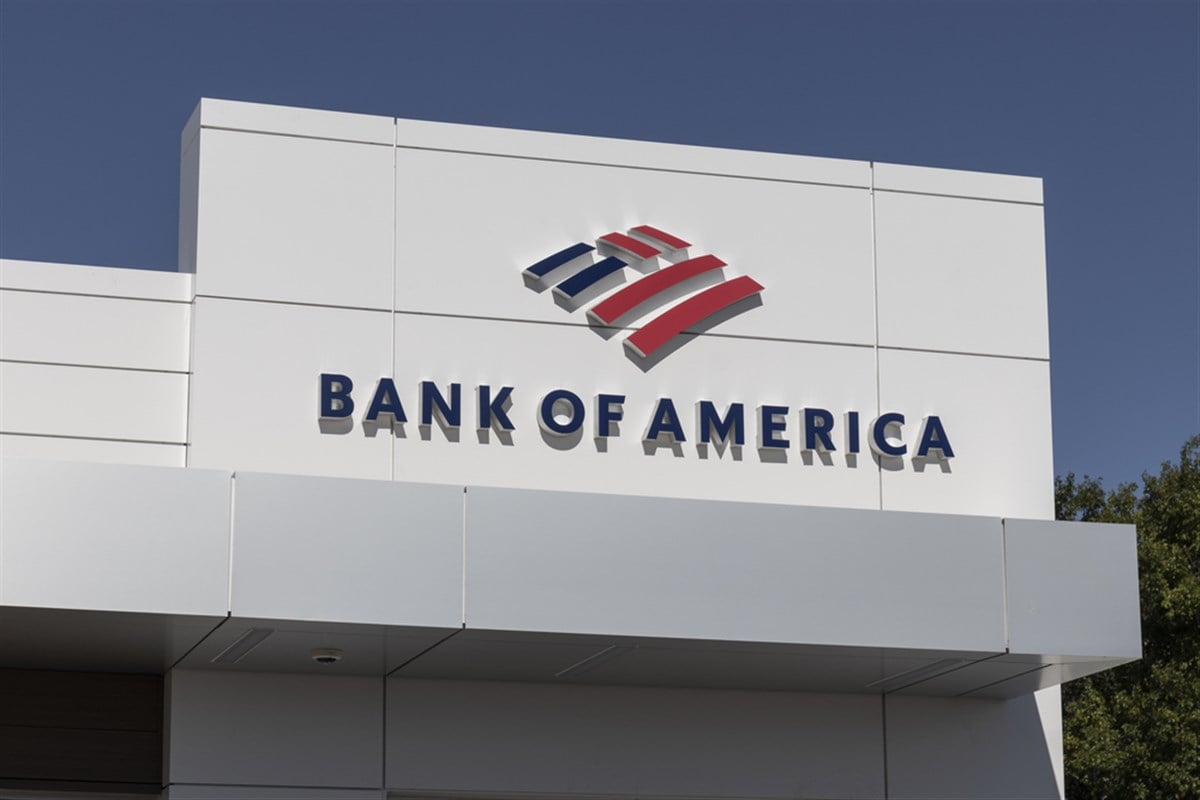
One of the most significant economic indicators has just turned into expansion mode after leaving investors concerned about the Federal Reserve (the Fed) not following through with its plans to cut interest rates by the end of 2024. The M2 money supply is now back into expansion to change its previously steady contraction path, and that’s good news for those with buying power.
On a year-over-year basis, the United States money supply is up slightly. However, despite how slight its increase may be, the drivers behind the expansion are what matters to investors today. The Fed typically starts to print money in preparation to cut interest rates, as it is part of the ‘quantitative easing’ package for the economy.
Financial stocks like Bank of America Co. (NYSE: BAC). J.P. Morgan Chase & Co. (NYSE: JPM) and even Wells Fargo & Co. (NYSE: WFC) are the top choices for investors to start riding the bullish side effects of the new Fed’s path. Because this new injected currency will likely end up in the hands of consumers, here’s how these banks are set to benefit today.
Stock Rally Potential: Bank of America's Balance Sheet vs. Slowing Trends
Looking at Bank of America’s latest quarterly results presentation, investors can see how the mortgage department has been a pain point over the past year. Residential mortgage loans contracted by 12% over the past 12 months, severely compressing the bank’s net interest income (NII).
However, because the money supply is on the rise, this money will likely end up in the hands of banks like Bank of America, which can have a more flexible lending program to ride on the potential mortgage demand that is to come. How can investors gauge this trend?
Multifamily property value is down nearly 10% in the past year, and rising liquidity through money supply is a precursor to the Fed cutting rates, which would be suitable for a mortgage business recovery at Bank of America. But there’s another hidden benefit to lower rates.
Because Bank of America’s financials show roughly $842 million in debt securities synonymous with bonds, the stock’s book value could rally in the coming months. Because bond values move opposite to interest rates, interest rate cuts from the Fed could significantly boost the book value for this stock.
Despite slowing trends, Bank of America’s balance sheet could be the key for investors to unlock further upside. But how much upside? Oppenheimer suggests approximately 17% from where the stock trades today, as they placed a $46 a share price target for the bank.
Wells Fargo's Commercial Strategy Drives Away Short Sellers
Wells Fargo is arguably the more commercial of the three banks. It focuses more on the industry's consumer lending side, allowing the bank to tap into much more upside than meets the eye.
At what could be the bottom of the mortgage cycle, Wells Fargo’s quarterly earnings presentation shows that mortgage loan originations reached their lowest volume all year. Like Bank of America, this company holds many bonds on its balance sheet. These assets could be worth a lot more in the coming months.
How much? The bank’s financials will reveal up to $380 million in bonds, or roughly 1.8% of the bank’s market capitalization. Seeing how the market is willing to pay a 30% premium to the stock’s book value as its price-to-book (P/B) multiple of 1.3x shows.
Even though the stock trades at 94% of its 52-week high price, Wall Street expects further upside in the next few quarters. Evercore analysts felt comfortable placing a valuation of up to $67 a share for Wells Fargo stock, daring it to rally by 13.5% from its current level.
Facing all this upside and coming bullish trends, bearish traders stopped trying to cap this stock away from its potential. Over the past month, Wells Fargo stock’s short interest declined by 4.7%, showing this trend in action.
JP Morgan's Investment Banking Edge Positions It for Maximum Upside
This bank is not only exposed to having access to mortgage and consumer lending through its Chase arm. J.P. Morgan Chase has a sizeable investment banking branch that can further boost profits aside from the commercial activity it already enjoys.
As money supply hits the market with newfound liquidity, mergers and acquisitions (M&A) activity could boost, as buyouts and corporate actions often depend on accessible and cheap financing rates with ample liquidity.
More than that, the entire financial market will see more available liquidity, leading this bank's sales and trading department to expect higher commission revenue and proprietary trading profits.
Analysts at the UBS Group may have taken this trend into account when they slapped a $224 price target on J.P. Morgan Chase stock, calling for up to 14% upside from where the stock sits today, which is already a bullish momentum-filled 96% of its 52-week high.
More than having greater exposure to the consumer and business cycles, J.P. Morgan's financials show up to $422 million held in bonds. Adding this potential upside to the stock's book value on rising bond values justifies the market's paying a 1.8x P/B multiple for this stock.